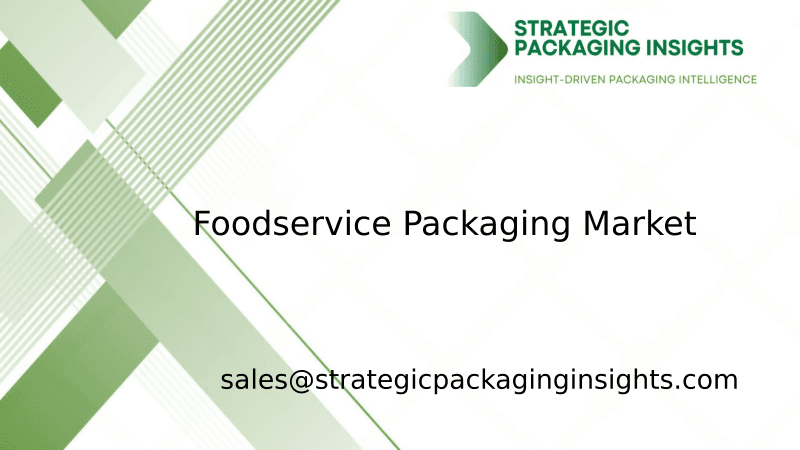- Home
- Packaging Products
- Polypropylene Lamination Films Market Size, Future Growth and Forecast 2033
Polypropylene Lamination Films Market Size, Future Growth and Forecast 2033
Polypropylene Lamination Films Market Segments - by Type (Biaxially Oriented Polypropylene (BOPP), Cast Polypropylene (CPP)), Application (Food Packaging, Industrial Packaging, Consumer Goods, Pharmaceuticals, Others), End-User (Food & Beverage, Healthcare, Personal Care, Industrial, Others) - Market Dynamics, Growth Opportunities, Strategic Drivers, and PESTLE Outlook (2025–2033)
Polypropylene Lamination Films Market Outlook
The Polypropylene Lamination Films market was valued at $12.5 billion in 2024 and is projected to reach $19.8 billion by 2033, growing at a CAGR of 5.2% during the forecast period 2025-2033. This market is witnessing significant growth due to the increasing demand for Flexible Packaging solutions across various industries. Polypropylene lamination films are known for their excellent clarity, moisture resistance, and cost-effectiveness, making them a preferred choice for packaging applications. The food and beverage industry, in particular, is a major consumer of these films, driven by the need for extended shelf life and enhanced product presentation. Additionally, the rise in e-commerce and the growing trend of online food delivery services are further propelling the demand for polypropylene lamination films. Technological advancements in film manufacturing and the development of eco-friendly variants are also contributing to market expansion.
However, the market faces challenges such as fluctuating raw material prices and stringent environmental regulations regarding plastic usage. Despite these restraints, the market holds immense growth potential due to the increasing adoption of Sustainable Packaging solutions. Manufacturers are focusing on developing biodegradable and recyclable polypropylene films to align with global sustainability goals. The growing awareness among consumers regarding the environmental impact of packaging materials is also driving the demand for eco-friendly options. Furthermore, the expansion of the retail sector and the increasing penetration of organized retail formats in emerging economies are expected to create lucrative opportunities for market players.
Report Scope
| Attributes | Details |
| Report Title | Polypropylene Lamination Films Market Size, Future Growth and Forecast 2033 |
| Base Year | 2024 |
| Historic Data | 2017-2023 |
| Forecast Period | 2025-2033 |
| Number of Pages | 196 |
| Type | Biaxially Oriented Polypropylene (BOPP), Cast Polypropylene (CPP) |
| Application | Food Packaging, Industrial Packaging, Consumer Goods, Pharmaceuticals, Others |
| End-User | Food & Beverage, Healthcare, Personal Care, Industrial, Others |
| Customization Available | Yes* |
Key Highlights Polypropylene Lamination Films Market

- Rising demand for flexible packaging solutions in the food and beverage industry.
- Technological advancements in film manufacturing processes.
- Increasing adoption of eco-friendly and recyclable polypropylene films.
- Growth in e-commerce and online food delivery services boosting demand.
- Expansion of organized retail formats in emerging economies.
- Challenges posed by fluctuating raw material prices.
- Stringent environmental regulations impacting market dynamics.
- Development of biodegradable polypropylene films gaining traction.
- Growing consumer awareness about sustainable packaging solutions.
- Significant growth opportunities in the Asia-Pacific region.
Competitive Intelligence
The competitive landscape of the Polypropylene Lamination Films market is characterized by the presence of several key players striving to enhance their market position through strategic initiatives. Companies such as Jindal Poly Films Ltd., Cosmo Films Ltd., Taghleef Industries, and Uflex Ltd. are leading the market with substantial market shares. Jindal Poly Films Ltd. is known for its extensive product portfolio and strong distribution network, enabling it to cater to a wide range of industries globally. Cosmo Films Ltd. focuses on innovation and sustainability, offering a range of eco-friendly polypropylene films. Taghleef Industries has a strong presence in the Middle East and Africa, leveraging its geographic reach to expand its customer base. Uflex Ltd. emphasizes research and development to introduce advanced film solutions, enhancing its competitive edge.
Other notable players include Polyplex Corporation Ltd., Treofan Group, Innovia Films, and Toray Plastics (America), Inc. Polyplex Corporation Ltd. is recognized for its high-quality films and customer-centric approach, while Treofan Group specializes in BOPP Films with a focus on the European market. Innovia Films is a leader in sustainable packaging solutions, offering biodegradable and compostable films. Toray Plastics (America), Inc. is known for its innovative product offerings and strong presence in North America. These companies are actively investing in research and development to introduce new products and expand their market presence. The competitive landscape is dynamic, with companies focusing on mergers, acquisitions, and partnerships to strengthen their market position and gain a competitive advantage.
Regional Market Intelligence of Polypropylene Lamination Films
The global Polypropylene Lamination Films market is segmented into major regions, including North America, Europe, Asia-Pacific, Latin America, and the Middle East & Africa. In North America, the market is valued at $3.2 billion and is expected to grow steadily due to the increasing demand for sustainable packaging solutions. The presence of major food and beverage companies in the region further drives market growth. Europe, with a market size of $2.8 billion, is witnessing growth driven by stringent regulations promoting eco-friendly packaging materials. The Asia-Pacific region, valued at $4.5 billion, is the fastest-growing market, attributed to the rapid industrialization and urbanization in countries like China and India. The growing middle-class population and rising disposable incomes are also contributing to market expansion.
In Latin America, the market is valued at $1.5 billion, with growth driven by the increasing adoption of flexible packaging solutions in the food and beverage industry. The Middle East & Africa region, with a market size of $0.5 billion, is experiencing moderate growth due to the rising demand for packaged food products and the expansion of the retail sector. Each region presents unique growth opportunities and challenges, with varying degrees of market maturity and consumer preferences. Companies are focusing on regional expansion strategies to tap into these opportunities and strengthen their market presence.
Top Countries Insights in Polypropylene Lamination Films
In the United States, the Polypropylene Lamination Films market is valued at $2.5 billion, with a CAGR of 4%. The demand is driven by the increasing preference for sustainable packaging solutions and the presence of major food and beverage companies. In China, the market is valued at $3 billion, with a CAGR of 6%, fueled by rapid industrialization and urbanization. The growing middle-class population and rising disposable incomes are also contributing to market growth. India, with a market size of $1.2 billion and a CAGR of 7%, is witnessing growth due to the expansion of the retail sector and the increasing adoption of flexible packaging solutions.
In Germany, the market is valued at $1 billion, with a CAGR of 3%, driven by stringent regulations promoting eco-friendly packaging materials. The United Kingdom, with a market size of $0.8 billion and a CAGR of 2%, is experiencing growth due to the increasing demand for sustainable packaging solutions and the presence of major food and beverage companies. Each country presents unique growth drivers and challenges, with varying degrees of market maturity and consumer preferences. Companies are focusing on country-specific strategies to tap into these opportunities and strengthen their market presence.
Polypropylene Lamination Films Market Segments Insights

Biaxially Oriented Polypropylene (BOPP) Analysis
Biaxially Oriented Polypropylene (BOPP) films are a significant segment in the polypropylene lamination films market, known for their excellent clarity, strength, and barrier properties. These films are widely used in food packaging applications due to their ability to preserve the freshness and quality of food products. The demand for BOPP films is driven by the increasing preference for flexible packaging solutions in the food and beverage industry. Additionally, the growing trend of online food delivery services is further boosting the demand for BOPP films. Manufacturers are focusing on developing innovative BOPP films with enhanced barrier properties to cater to the evolving needs of the packaging industry.
The BOPP segment is also witnessing growth due to the increasing adoption of eco-friendly packaging solutions. Manufacturers are investing in research and development to introduce biodegradable and recyclable BOPP films, aligning with global sustainability goals. The expansion of the retail sector and the increasing penetration of organized retail formats in emerging economies are expected to create lucrative opportunities for market players. However, the segment faces challenges such as fluctuating raw material prices and stringent environmental regulations regarding plastic usage. Despite these challenges, the BOPP segment holds immense growth potential due to the increasing demand for sustainable packaging solutions.
Cast Polypropylene (CPP) Analysis
Cast Polypropylene (CPP) films are another important segment in the polypropylene lamination films market, known for their excellent heat sealability, clarity, and moisture resistance. These films are widely used in packaging applications for food products, textiles, and consumer goods. The demand for CPP films is driven by the increasing preference for flexible packaging solutions in various industries. Additionally, the growing trend of online shopping and the expansion of the e-commerce sector are further boosting the demand for CPP films. Manufacturers are focusing on developing innovative CPP films with enhanced properties to cater to the evolving needs of the packaging industry.
The CPP segment is also witnessing growth due to the increasing adoption of eco-friendly packaging solutions. Manufacturers are investing in research and development to introduce biodegradable and recyclable CPP films, aligning with global sustainability goals. The expansion of the retail sector and the increasing penetration of organized retail formats in emerging economies are expected to create lucrative opportunities for market players. However, the segment faces challenges such as fluctuating raw material prices and stringent environmental regulations regarding plastic usage. Despite these challenges, the CPP segment holds immense growth potential due to the increasing demand for sustainable packaging solutions.
Food Packaging Analysis
The food packaging segment is a major application area for polypropylene lamination films, driven by the increasing demand for flexible packaging solutions in the food and beverage industry. Polypropylene lamination films are known for their excellent clarity, moisture resistance, and cost-effectiveness, making them a preferred choice for food packaging applications. The demand for food Packaging Films is driven by the need for extended shelf life and enhanced product presentation. Additionally, the rise in e-commerce and the growing trend of online food delivery services are further propelling the demand for polypropylene lamination films.
The food packaging segment is also witnessing growth due to the increasing adoption of eco-friendly packaging solutions. Manufacturers are investing in research and development to introduce biodegradable and recyclable Food Packaging Films, aligning with global sustainability goals. The expansion of the retail sector and the increasing penetration of organized retail formats in emerging economies are expected to create lucrative opportunities for market players. However, the segment faces challenges such as fluctuating raw material prices and stringent environmental regulations regarding plastic usage. Despite these challenges, the food packaging segment holds immense growth potential due to the increasing demand for sustainable packaging solutions.
Industrial Packaging Analysis
The industrial packaging segment is another important application area for polypropylene lamination films, driven by the increasing demand for flexible packaging solutions in various industries. Polypropylene lamination films are known for their excellent clarity, moisture resistance, and cost-effectiveness, making them a preferred choice for industrial packaging applications. The demand for Industrial Packaging Films is driven by the need for extended shelf life and enhanced product presentation. Additionally, the rise in e-commerce and the growing trend of online shopping are further propelling the demand for polypropylene lamination films.
The industrial packaging segment is also witnessing growth due to the increasing adoption of eco-friendly packaging solutions. Manufacturers are investing in research and development to introduce biodegradable and recyclable industrial packaging films, aligning with global sustainability goals. The expansion of the retail sector and the increasing penetration of organized retail formats in emerging economies are expected to create lucrative opportunities for market players. However, the segment faces challenges such as fluctuating raw material prices and stringent environmental regulations regarding plastic usage. Despite these challenges, the industrial packaging segment holds immense growth potential due to the increasing demand for sustainable packaging solutions.
The market share distribution of key players in the Polypropylene Lamination Films market is characterized by the dominance of a few major companies. Jindal Poly Films Ltd. and Cosmo Films Ltd. are leading the market with substantial market shares, driven by their extensive product portfolios and strong distribution networks. Taghleef Industries and Uflex Ltd. are also prominent players, focusing on innovation and sustainability to enhance their market position. These companies are actively investing in research and development to introduce new products and expand their market presence. The competitive landscape is dynamic, with companies focusing on mergers, acquisitions, and partnerships to strengthen their market position and gain a competitive advantage.
The market share distribution affects pricing, innovation, and partnerships, with leading companies setting the benchmark for product quality and innovation. Smaller players are focusing on niche markets and specialized products to gain a competitive edge. The market is witnessing a trend towards consolidation, with larger companies acquiring smaller players to expand their product offerings and geographic reach. This trend is expected to continue, with companies focusing on strategic initiatives to enhance their market position and gain a competitive advantage.
Polypropylene Lamination Films Market Segments
The Polypropylene Lamination Films market has been segmented on the basis of
Type
- Biaxially Oriented Polypropylene (BOPP)
- Cast Polypropylene (CPP)
Application
- Food Packaging
- Industrial Packaging
- Consumer Goods
- Pharmaceuticals
- Others
End-User
- Food & Beverage
- Healthcare
- Personal Care
- Industrial
- Others
Primary Interview Insights
What are the key drivers for the growth of the Polypropylene Lamination Films market?
What challenges does the Polypropylene Lamination Films market face?
Which region is expected to witness the highest growth in the Polypropylene Lamination Films market?
How are companies addressing the demand for sustainable packaging solutions?
What are the growth opportunities in the Polypropylene Lamination Films market?
Latest Reports

The fiber drums market was valued at $1.2 billion in 2024 and is projected to reach $2.1 billion by 2033, growing at a CAGR of 6.5% during the forecast period 2025–2033.

The cosmetics and perfumery glass bottles market was valued at $1.5 billion in 2024 and is projected to reach $2.3 billion by 2033, growing at a CAGR of 4.8% during the forecast period 2025–2033.

The medical devices packaging market was valued at $25 billion in 2024 and is projected to reach $40 billion by 2033, growing at a CAGR of 5.5% during the forecast period 2025–2033.

The primary packaging labels market was valued at $35 billion in 2024 and is projected to reach $55 billion by 2033, growing at a CAGR of 5.2% during the forecast period 2025–2033.

The corrugated board packaging market was valued at $250 billion in 2024 and is projected to reach $380 billion by 2033, growing at a CAGR of 4.5% during the forecast period 2025–2033.

The Water Soluble Packaging Films market was valued at $2.8 billion in 2024 and is projected to reach $5.6 billion by 2033, growing at a CAGR of 8.1% during the forecast period 2025–2033.

The Aluminium Foil Packaging market was valued at $25 billion in 2024 and is projected to reach $40 billion by 2033, growing at a CAGR of 5.5% during the forecast period 2025–2033.

The self-heating food packaging market was valued at $4.5 billion in 2024 and is projected to reach $7.8 billion by 2033, growing at a CAGR of 6.2% during the forecast period 2025–2033.

The Smart Container market was valued at $2.5 billion in 2024 and is projected to reach $8.7 billion by 2033, growing at a CAGR of 14.5% during the forecast period 2025–2033.

The Automatic Labeling Machine market was valued at $2.5 billion in 2024 and is projected to reach $4.8 billion by 2033, growing at a CAGR of 7.2% during the forecast period 2025–2033.

The Hot Melt Glue Labeler market was valued at $1.2 billion in 2024 and is projected to reach $2.3 billion by 2033, growing at a CAGR of 6.5% during the forecast period 2025–2033.

The Ethical Label market was valued at $1.5 billion in 2024 and is projected to reach $3.2 billion by 2033, growing at a CAGR of 8.5% during the forecast period 2025–2033.

The Packaging Tensioner market was valued at $1.2 billion in 2024 and is projected to reach $2.3 billion by 2033, growing at a CAGR of 6.5% during the forecast period 2025–2033.

The foodservice packaging market was valued at $120 billion in 2024 and is projected to reach $180 billion by 2033, growing at a CAGR of 4.5% during the forecast period 2025–2033.

The nano-enabled packaging market was valued at $15.2 billion in 2024 and is projected to reach $35.6 billion by 2033, growing at a CAGR of 9.5% during the forecast period 2025–2033.

The Cold Seal Packaging market was valued at $1.5 billion in 2024 and is projected to reach $2.3 billion by 2033, growing at a CAGR of 4.8% during the forecast period 2025–2033.

The Transparent Barrier Packaging Films market was valued at $12.5 billion in 2024 and is projected to reach $20.3 billion by 2033, growing at a CAGR of 5.8% during the forecast period 2025–2033.

The Flatback Tape market was valued at $2.5 billion in 2024 and is projected to reach $4.1 billion by 2033, growing at a CAGR of 5.8% during the forecast period 2025–2033.

The packer bottle market was valued at $3.5 billion in 2024 and is projected to reach $5.8 billion by 2033, growing at a CAGR of 5.2% during the forecast period 2025–2033.

The Canada Nano-Enabled Packaging Food Beverages market was valued at $1.2 billion in 2024 and is projected to reach $3.5 billion by 2033, growing at a CAGR of 12.5% during the forecast period 2025–2033.

The India Aluminum Beverage Can market was valued at $1.2 billion in 2024 and is projected to reach $2.5 billion by 2033, growing at a CAGR of 8.5% during the forecast period 2025–2033.

The fast-food reusable packaging market was valued at $1.2 billion in 2024 and is projected to reach $3.5 billion by 2033, growing at a CAGR of 12.5% during the forecast period 2025–2033.

The pallets market was valued at $59.91 billion in 2024 and is projected to reach $88.69 billion by 2033, growing at a CAGR of 4.5% during the forecast period 2025–2033.

The lamination adhesives market was valued at $2.5 billion in 2024 and is projected to reach $4.1 billion by 2033, growing at a CAGR of 5.8% during the forecast period 2025–2033.

The garment packing machine market was valued at $1.2 billion in 2024 and is projected to reach $2.5 billion by 2033, growing at a CAGR of 8.5% during the forecast period 2025–2033.

The fiber drums market was valued at $1.2 billion in 2024 and is projected to reach $2.1 billion by 2033, growing at a CAGR of 6.5% during the forecast period 2025–2033.

The cosmetics and perfumery glass bottles market was valued at $1.5 billion in 2024 and is projected to reach $2.3 billion by 2033, growing at a CAGR of 4.8% during the forecast period 2025–2033.

The medical devices packaging market was valued at $25 billion in 2024 and is projected to reach $40 billion by 2033, growing at a CAGR of 5.5% during the forecast period 2025–2033.

The primary packaging labels market was valued at $35 billion in 2024 and is projected to reach $55 billion by 2033, growing at a CAGR of 5.2% during the forecast period 2025–2033.

The corrugated board packaging market was valued at $250 billion in 2024 and is projected to reach $380 billion by 2033, growing at a CAGR of 4.5% during the forecast period 2025–2033.

The Water Soluble Packaging Films market was valued at $2.8 billion in 2024 and is projected to reach $5.6 billion by 2033, growing at a CAGR of 8.1% during the forecast period 2025–2033.

The Aluminium Foil Packaging market was valued at $25 billion in 2024 and is projected to reach $40 billion by 2033, growing at a CAGR of 5.5% during the forecast period 2025–2033.

The self-heating food packaging market was valued at $4.5 billion in 2024 and is projected to reach $7.8 billion by 2033, growing at a CAGR of 6.2% during the forecast period 2025–2033.

The Smart Container market was valued at $2.5 billion in 2024 and is projected to reach $8.7 billion by 2033, growing at a CAGR of 14.5% during the forecast period 2025–2033.

The Automatic Labeling Machine market was valued at $2.5 billion in 2024 and is projected to reach $4.8 billion by 2033, growing at a CAGR of 7.2% during the forecast period 2025–2033.

The Hot Melt Glue Labeler market was valued at $1.2 billion in 2024 and is projected to reach $2.3 billion by 2033, growing at a CAGR of 6.5% during the forecast period 2025–2033.

The Ethical Label market was valued at $1.5 billion in 2024 and is projected to reach $3.2 billion by 2033, growing at a CAGR of 8.5% during the forecast period 2025–2033.

The Packaging Tensioner market was valued at $1.2 billion in 2024 and is projected to reach $2.3 billion by 2033, growing at a CAGR of 6.5% during the forecast period 2025–2033.

The foodservice packaging market was valued at $120 billion in 2024 and is projected to reach $180 billion by 2033, growing at a CAGR of 4.5% during the forecast period 2025–2033.

The nano-enabled packaging market was valued at $15.2 billion in 2024 and is projected to reach $35.6 billion by 2033, growing at a CAGR of 9.5% during the forecast period 2025–2033.

The Cold Seal Packaging market was valued at $1.5 billion in 2024 and is projected to reach $2.3 billion by 2033, growing at a CAGR of 4.8% during the forecast period 2025–2033.

The Transparent Barrier Packaging Films market was valued at $12.5 billion in 2024 and is projected to reach $20.3 billion by 2033, growing at a CAGR of 5.8% during the forecast period 2025–2033.

The Flatback Tape market was valued at $2.5 billion in 2024 and is projected to reach $4.1 billion by 2033, growing at a CAGR of 5.8% during the forecast period 2025–2033.

The packer bottle market was valued at $3.5 billion in 2024 and is projected to reach $5.8 billion by 2033, growing at a CAGR of 5.2% during the forecast period 2025–2033.

The Canada Nano-Enabled Packaging Food Beverages market was valued at $1.2 billion in 2024 and is projected to reach $3.5 billion by 2033, growing at a CAGR of 12.5% during the forecast period 2025–2033.

The India Aluminum Beverage Can market was valued at $1.2 billion in 2024 and is projected to reach $2.5 billion by 2033, growing at a CAGR of 8.5% during the forecast period 2025–2033.

The fast-food reusable packaging market was valued at $1.2 billion in 2024 and is projected to reach $3.5 billion by 2033, growing at a CAGR of 12.5% during the forecast period 2025–2033.

The pallets market was valued at $59.91 billion in 2024 and is projected to reach $88.69 billion by 2033, growing at a CAGR of 4.5% during the forecast period 2025–2033.

The lamination adhesives market was valued at $2.5 billion in 2024 and is projected to reach $4.1 billion by 2033, growing at a CAGR of 5.8% during the forecast period 2025–2033.

The garment packing machine market was valued at $1.2 billion in 2024 and is projected to reach $2.5 billion by 2033, growing at a CAGR of 8.5% during the forecast period 2025–2033.
